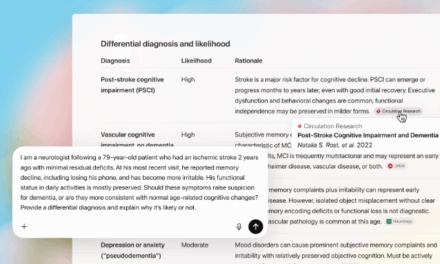The updated platform is designed to shorten the time between cancer diagnosis and treatment by streamlining clinical workflows.
GE HealthCare has announced updates to its Intelligent Radiation Therapy (iRT) software, a solution designed to shorten the time between cancer diagnosis and treatment by streamlining clinical workflows. The new version, showcased at the American Society for Radiation Oncology 2025 Annual Meeting, features enhanced connectivity with third-party systems and new tools for managing the emerging field of theranostics.
Radiation oncology departments often operate with multiple, disconnected systems, which can lead to manual data re-entry, treatment delays, and potential errors. According to the company, simple tasks like importing treatment data can require up to 17 manual steps. The iRT platform is a vendor-neutral solution that manages data between these systems. Early adopters have reported a reduction in the time from simulation to treatment planning from seven days to seven minutes through integration with RayStation by RaySearch Laboratories.
New Features and Enhanced Connectivity
The latest iRT version introduces several new features aimed at improving departmental efficiency. An analytics reporting tool provides administrators with data to identify operational gaps and trends, while a new staff scheduler helps optimize resource management to reduce delays.
From a technical perspective, the platform adds greater interoperability with systems common in oncology, including electronic medical records (EMR), oncology information systems (OIS), and other Fast Healthcare Interoperability Resources (FHIR). It also incorporates artificial intelligence for tasks like the auto-segmentation of organs at risk using GE HealthCare’s MR Contour DL for magnetic resonance imaging and is compatible with third-party tools for computed tomography imaging.
“We are transforming the radiation therapy experience for patients and clinicians with our Intelligent Radiation Therapy solution, helping clinicians move from diagnosis to treatment in minutes, not days,” says Ben Newton, GE HealthCare’s general manager for Oncology Solutions, in a release. “We’re thrilled to share the latest features in iRT designed to bring greater precision, efficiency, and personalization to cancer care.”
Expanding into Theranostics
The company also unveiled a new capability for theranostics, a field of nuclear medicine that combines molecular imaging with targeted radionuclide therapies. Current theranostics workflows are often manual and require significant coordination.
The iRT for theranostics module aims to provide a unified view of the patient journey by integrating with EMRs and OIS. It is designed to guide clinicians through patient intake, scheduling, medication dosing, dosimetry, and clinical reviews.
“Miami Cancer Institute is pleased to collaborate with GE HealthCare on iRT, an innovative solution designed to address the rapidly evolving landscape of radiopharmaceuticals,” says Ranjini Tolakanahalli, PhD, director of photon physics at Miami Cancer Institute, part of Baptist Health South Florida, in a release. “Together, we are developing a solution where clinical priorities shape design, ensuring future solutions are informed by real-world medical expertise.”
Photo caption: GE HealthCare’s Intelligent Radiation Therapy (iRT) software
Photo credit: GE HealthCare





